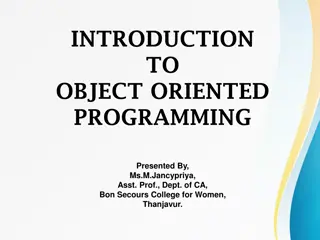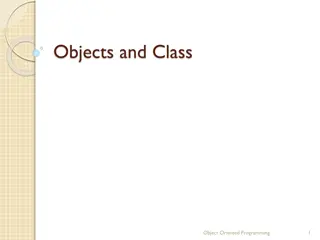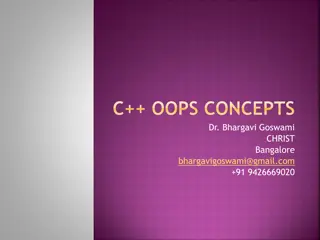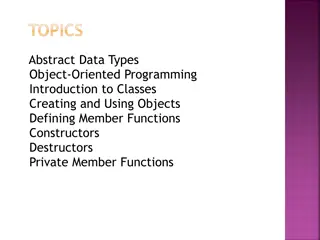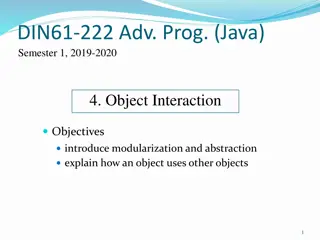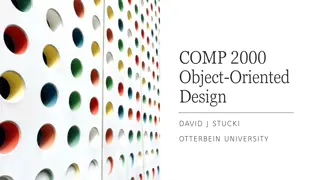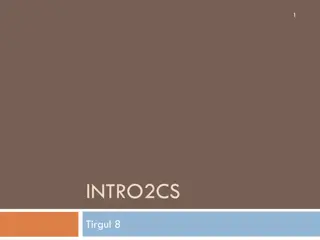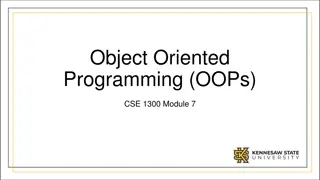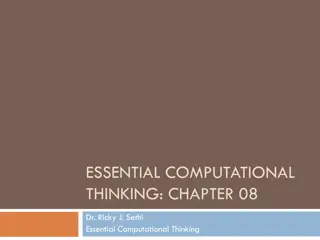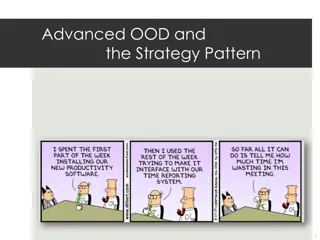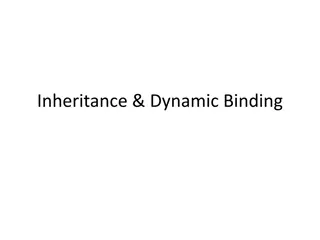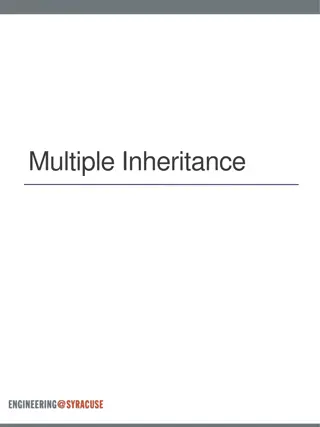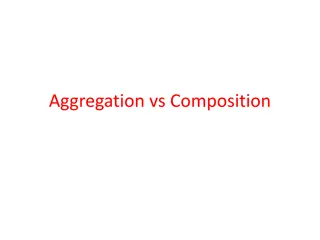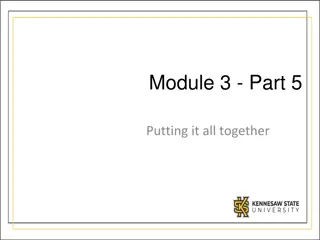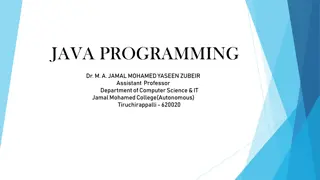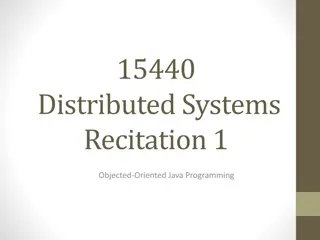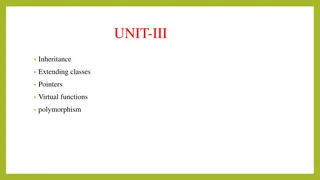Object-Oriented Programming Concepts Illustrated
Learn about creating and working with arrays, defining functions, and building classes in an object-oriented programming context. Dive into examples like creating arrays of objects, defining arrays with pointers, and designing classes for a publishing company that markets books and audio cassettes. Follow along to trace the provided C++ program step by step and explore extra examples for further understanding.
Download Presentation

Please find below an Image/Link to download the presentation.
The content on the website is provided AS IS for your information and personal use only. It may not be sold, licensed, or shared on other websites without obtaining consent from the author.If you encounter any issues during the download, it is possible that the publisher has removed the file from their server.
You are allowed to download the files provided on this website for personal or commercial use, subject to the condition that they are used lawfully. All files are the property of their respective owners.
The content on the website is provided AS IS for your information and personal use only. It may not be sold, licensed, or shared on other websites without obtaining consent from the author.
E N D
Presentation Transcript
Define function create() to create array dynamically with size as global variables
Write the definition of an array called par1 of 3 objects of class person .
Write the definition of an array of 3 pointers called par1 to objects of class person.
Imagine a publishing company that markets both book and audio cassette versions of its works. Create a class publication that stores the title and the price of a publication. From this class derive two classes: book, which adds a page count tape, which adds a playing time in minutes Each of these three classes should have getdata() function to get its data from the user at the keyboard (no arguments passes ask the user inside the function ) . putdata() function to display its data.
Write a main() program that creates an array of pointers to publication. In a loop, ask the user for data about a particular book or tape, and use new to create an object of type book or tape to hold the data. When the user has finished entering the data for all books and tapes, display the resulting data for all the books and tapes entered, using a for loop and a single statement such as pubarr[j]->putdata(); to display the data from each object in the array.
Extra Examples Self read
Trace the program. #include <iostream> using namespace std ; //////////////////////////////////////// class Pet { public: Pet () {} // Constructors, Destructor ~Pet() {} void speak(){cout << "Growl" << endl;} }; ///////////////////////////////////////// class Rat: public Pet { public: // Constructors, Destructor Rat() {} ~Rat() {} void speak(){cout << "Rat noise" << endl;} };
Trace the program. class Cat: public Pet { public: Cat() {} ~Cat() {} void speak(){cout << "Meow" << endl;} }; /////////////////////////////////////////////// /////////// void chorus(Pet pt, Pet *petPtr, Pet &petRef) { pt.speak(); petPtr->speak(); petRef.speak(); }
Trace the program. void { Pet *ptr; //Pointer to base class ptr = new Pet; cout << "Pet Created" << endl; cout << "Pets singing" << endl; chorus(*ptr,ptr,*ptr); cout << endl << endl; delete ptr; /////////////////////////////////////// ptr = new Rat; cout << "Rat Created" << endl; cout << "Rats singing" << endl; chorus(*ptr,ptr,*ptr); cout << endl << endl; delete ptr; ////////////////////////////////////////// ptr = new Cat; cout << "Cat Created" << endl; cout << "Cats singing" << endl; chorus(*ptr,ptr,*ptr); cout << endl << endl; main() delete ptr; }
Convert Speak() function to virtual function then trace the program again. class Pet { public: Pet () {} // Constructors, Destructor ~Pet() {} virtual }; void speak(){cout << "Growl" << endl;}
Change class pet to be an abstract pet. class Pet { public: Pet () {} // Constructors, Destructor ~Pet() {} virtual }; void speak()=0;
void { Pet *ptr; //Pointer to base class main() /* ptr = new Pet; cout << "Pet Created" << endl; cout << "Pets singing" << endl; chorus(ptr,*ptr); cout << endl << endl; delete ptr; */ /////////////////////////////////////// ptr = new Rat; cout << "Rat Created" << endl; cout << "Rats singing" << endl; chorus(ptr,*ptr); cout << endl << endl; delete ptr; ////////////////////////////////////////// ptr = new Cat; cout << "Cat Created" << endl; cout << "Cats singing" << endl; chorus(ptr,*ptr); cout << endl << endl; delete ptr; }
Polymorphism allows one to declare a pointer to an object and allow it to not only point to the object the pointer was declared to point to but also point to any object that was inherited from that class. For example


